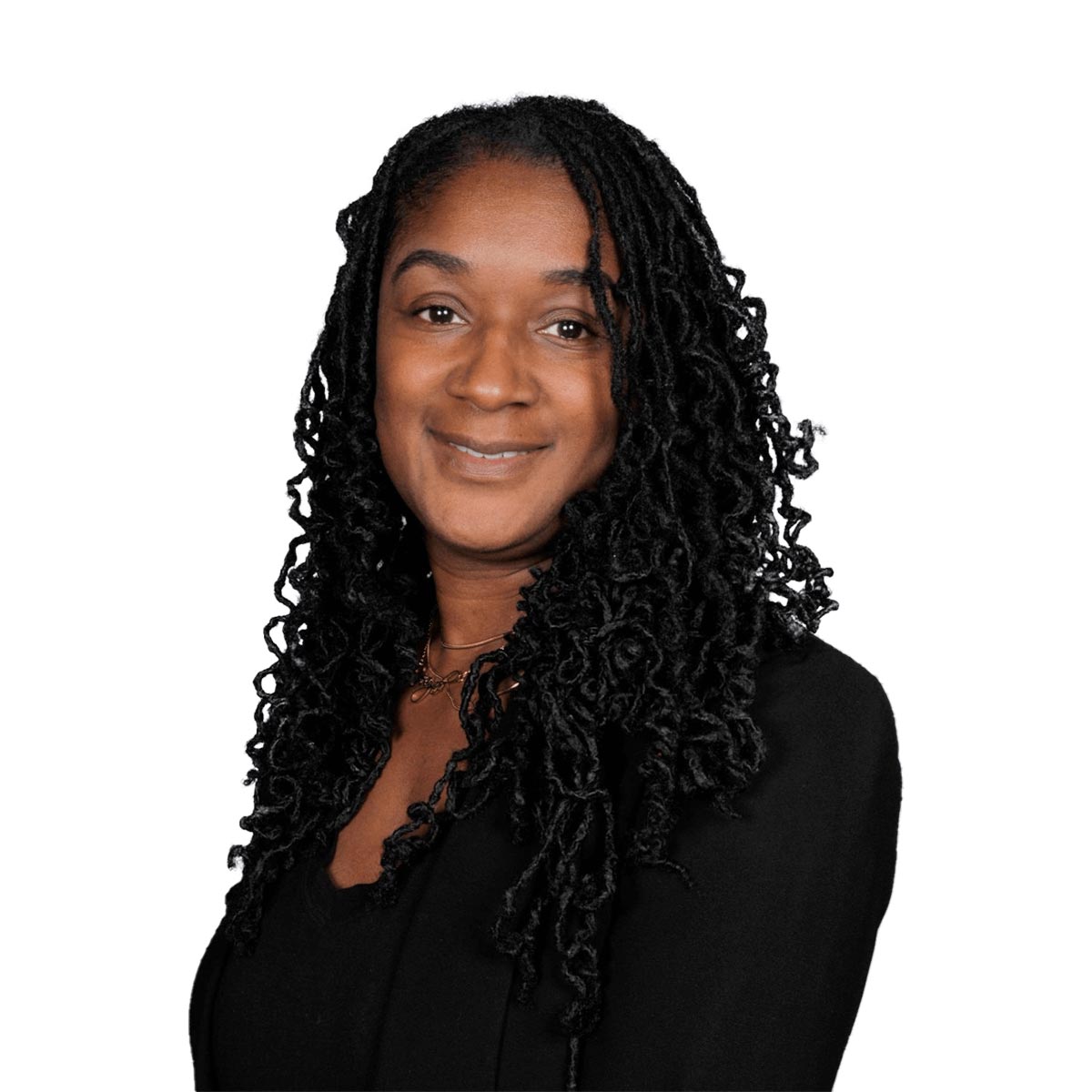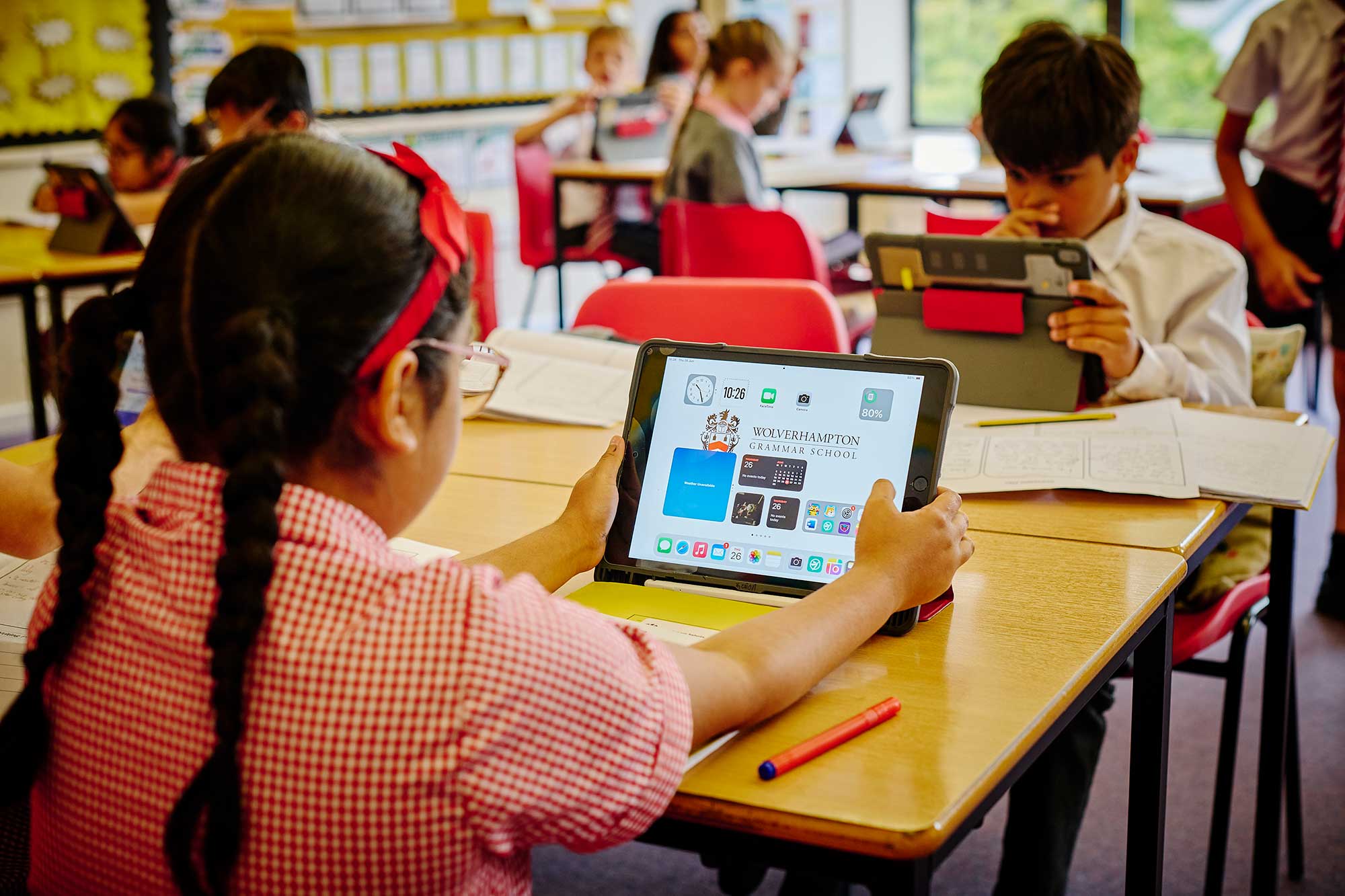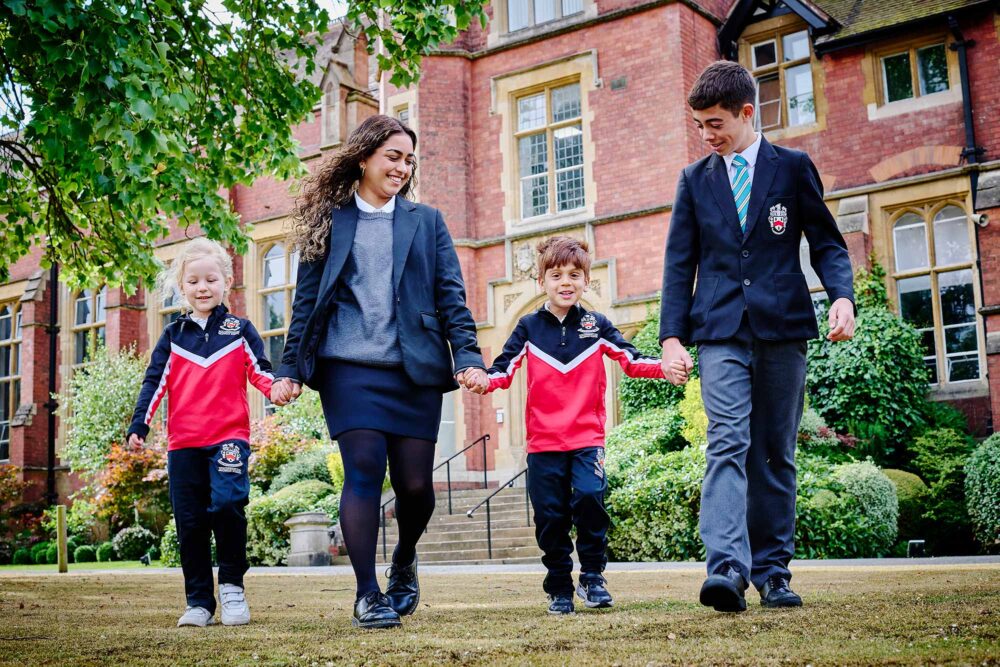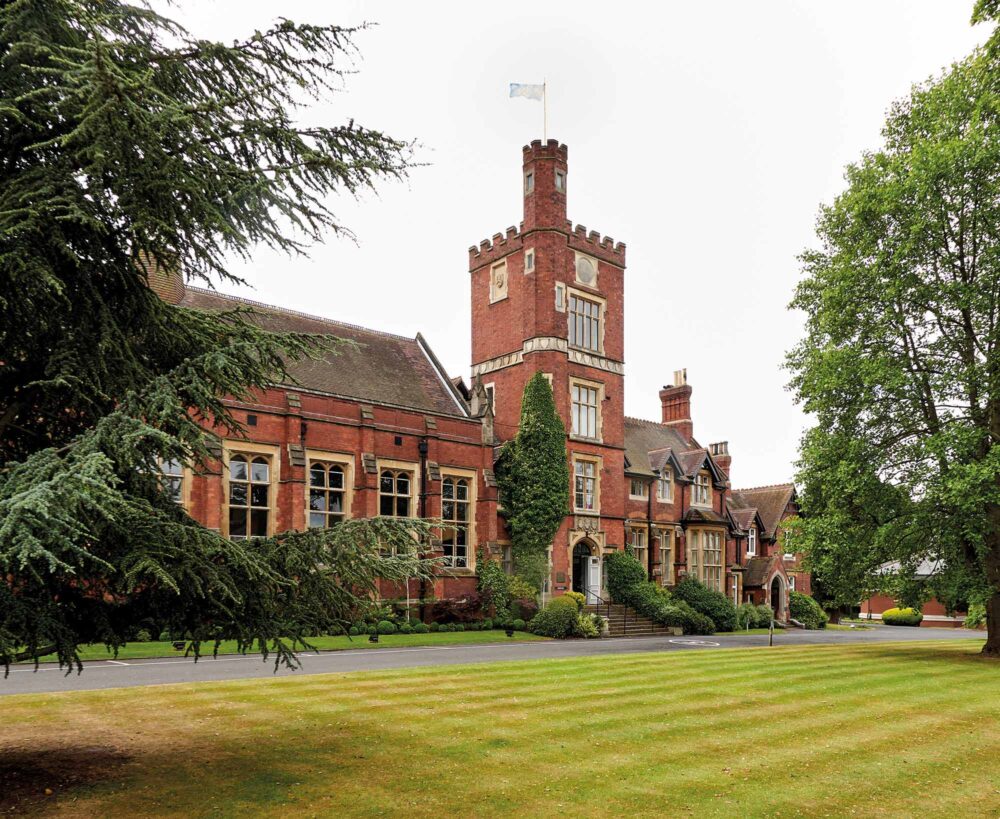Your child’s happiness is our priority
Pastoral care is a priority for Wolverhampton Grammar Junior School. We are a busy, happy and successful community. Our children’s learning, development and welfare are at the heart of everything we do.
Our children know there is always a trusted adult they can speak to if they have any worries; this could be their Form Tutor, House Tutor or any member of the teaching or support staff. Our Safe and Happy page on the student portal gives tips to children on staying safe at school, at home and online, with a ‘worry box’ which provides them with a safe space to make teachers aware of any concerns. Our Junior School pledge to always be kind, polite and try our best is further supported by the 3 Cs – Care, Courtesy and Consideration, which we strive to always show to each other and make WGJS the happiest place it can be.
As you will read on the accompanying pages, life at WGJS is the full, rounded experience – encompassing music, sport, playtime, extensive extra-curricular clubs and trips, on top of stimulating and exciting lessons. We support all aspects of your child’s development leaving them fulfilled and happy; we know that happy children succeed.
Specialist Support
Our experience is that early intervention is often the most effective means to achieve success. Any children that are identified as having additional needs will be supported in and out of the classroom, in 1:1 sessions and small groups.
Additional support is not just for academic needs but also to support those children who may have difficulties with social skills, SEMH (social , emotional and mental health) or Speech and Language.
Mrs Shayaam-Smith regularly meets with staff to discuss the needs of children she is working with. During the summer term a profile is completed in conjunction with your child during to support their transition to the next year group in September.
Children in Years 5 and 6 with a full educational psychologist’s report are able to access the OpAL (Opportunities through Assisted Learning) programme. This programme continues throughout the Senior School and is designed to offer individual support to assist students throughout the years leading to GCSE and A Level.

FAQs
At WGJS We have an open-door policy and are always happy to meet and discuss individual needs or concerns with parents.
We want every child to achieve their potential and more! Mrs Shayaam-Smith is our Junior school SENC0 and she will meet with all new children to assess their learning needs.
We will communicate regularly with parents through:
- School Emails – please ensure that these are correct and up-to-date
- Parent Portal on Firefly
- OpAL Parents Review Evenings
- In person parent meetings
- Telephone
If we are concerned about your child’s progress and feel that your child needs additional support, we will always speak to you about this.
Your child’s Class Teacher will speak to you at Parents’ Evening about the progress that your child has made, and you will be regularly updated through termly reports. If we feel that your child needs additional support or targets, we will discuss this with you.
If concerns are raised by staff about your child’s progress or speed of working, and we want your child to take part in some additional screening, we will contact you about this. If your child has more complex needs, then we may review your child’s progress and needs as part of an Educational Health and Care Plan. This person-centred approach enables all agencies involved in your child’s care to work together to ensure that your child’s needs are met.
You can make an appointment to speak to your child’s Class Teacher or Mrs Shayaam-Smith (Junior school SENCO) at any point during the year.
Within the Junior school, children that are identified as having additional needs are baselined using a Language and Literacy and/or Maths Continuum. In addition to this, a One Page profile is completed in conjunction with the pupil during the Summer term to support transition.
Mrs Shayaam-Smith regularly meets with staff to discuss the needs of your child and continuums are reviewed termly. One-page profiles are reviewed with the pupil during the Autumn term once they have settled into their new class.
When moving classes in school, information will be shared and discussed with the new class teacher in advance. If your child is moving to WGS from a different school, we will liaise with the previous school’s SENCO to find out as much information as possible about your child’s needs to ensure that these are immediately met. This will include any targets and paperwork or agencies which might have been involved in supporting your child.
Your child’s progress will be continually monitored by their Class Teacher. Their progress will be reviewed formally every term for English, Mathematics, Science, Humanities and PSHE. If your child is working below or significantly below the national expectation for their age, we will use an additional set of criteria to assess and identify gaps in their learning.
Mrs Shayaam-Smith works alongside teachers and teaching assistants throughout the academic year to gather evidence and identify any areas where extra support may be needed. She coordinates the ‘assess, plan, do’ review cycle via implementation of (Individual Target Plans (ITPs). ITPs are informed by the Language, Literacy and Maths Continuums and reviewed half termly.
In the Junior School, half termly target setting takes place between the Class teacher and child – children are involved in target setting and saying how well they have done. Their views are also taken into consideration when producing the One Page Profiles.
If your child needs additional support to help them make as much progress as possible, their curriculum may be modified so that they may take part in targeted interventions. ITPs are used to support interventions and in class support.
Sometimes we work with outside agencies, such as the Wolverhampton Education Services and Educational Psychologists to support us in making our assessments.


